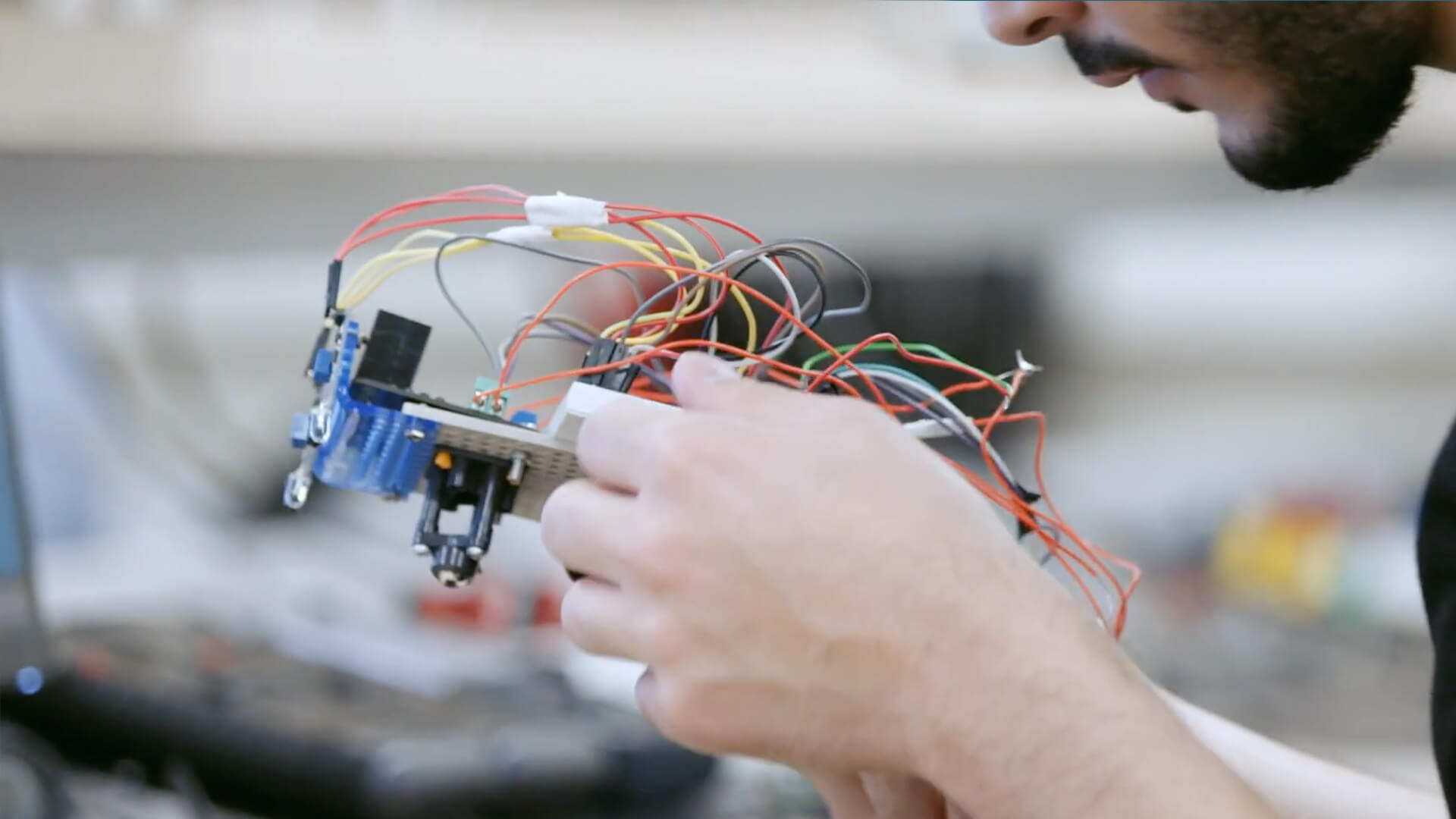Engineering plays a key role in finding solutions to complex challenges. Scientists help us to understand the world. Engineering harnesses that understanding. From cars and spacecraft, to television and internet, engineering has had a hand in it all. In this article, we look at the impact engineering can have on society and how King’s is readying the next generation of engineers.
COVID-19 is the biggest societal challenge we have encountered in many years, but already Engineering at King’s is making an impact on this; Harris Makatsoris, Professor of Sustainable Manufacturing Systems in the Department of Engineering, has recently been awarded a President’s Special Award for Pandemic Service by the Royal Academy of Engineering for his work on the production of synthetic RNA vaccines against the coronavirus pathogen.
It’s exactly this kind of impactful research that King’s is leading the way on and we want to ensure that the next generation of engineers is given all the opportunities needed to make an impact. To meet this need, we have embarked on ambitious plans for Engineering at King’s, including the introduction of a new undergraduate course in General Engineering, which is already proving popular, welcoming more than 50 students this year.
But what can our new students expect? COVID-19 has brought specific challenges for universities, schools and workplaces. Social distancing requirements mean that, for now, lecture halls full of students are a thing of the past. But what does that mean for education? This is a scenario Mischa Dohler, Chair Professor in Wireless Communications, is more than equipped to tackle. Professor Dohler is driving cross-disciplinary research and innovation in technology, sciences and arts at King’s. As part of the team that built the first 5G network in the UK, a typical day might involve working on AI and robotic surgery with surgeons like Prokar Dasgupta, Professor and Chair of Urology at King’s (who we met in InTouch A/W 2019), or collaborating with the National Gallery, the Royal Academy of Dramatic Arts, or even people like Rob Del Naja from the band Massive Attack on exciting fields merging technologies and the arts.
But the pressing challenge of getting King’s ready for teaching has jumped to the front of the queue. Professor Dohler tells us, ‘The upcoming months are going to be a tough transition for both students and academics. Online teaching is not an entirely new thing. Many academics are already versed in the flipped classroom approach, which has proved to be extremely effective for students.’
The new ‘flipped classroom’ approach, which Engineering at King’s is adopting, offers blended teaching. Students can learn at their own pace offline and maintain contact with their teachers through online Q and A sessions or working together on an applied project both on and offline, which is a workable solution during the time of social distancing.
Professor Dohler tells us, ‘This works really well with today’s students who are used to engaging in this way, rather than spending hours staring at a blackboard, which might have worked 20 years ago. This generation is used to getting a lot of information from digital media, so it won’t necessarily be a huge change. And, for academics, it offers an amazing opportunity: we can blend content long-term, keeping it creative and exploring how things work together. Working this way, we might find that five years in the future we have developed whole new modules or courses. That would accelerate the ability for us to offer degrees on emerging technologies in the future, and thus train the future workforce in a much more timely manner.’
Working this way, we might find that five years in the future we have developed whole new modules or courses. That would accelerate the ability for us to offer degrees on emerging technologies in the future, and thus train the future workforce in a much more timely manner.
MISCHA DOHLER, CHAIR PROFESSOR IN WIRELESS COMMUNICATIONS
The flipped classroom approach is just one of the methods we are adopting to make Engineering at King’s as future-focused as possible. Plans are also underway for a radical redevelopment of the Quad, where new labs, workspaces and much more will be at the disposal of our Engineering students and staff.
King’s is creating a vibrant environment where integrated problem-solving skills, critical for tomorrow’s engineers, can be nurtured, tested and explored, to help make the world a better and more sustainable place. In the next issue of InTouch Online, we will deep dive into Engineering at King’s. Check back then to find out what we’ve got in store.
